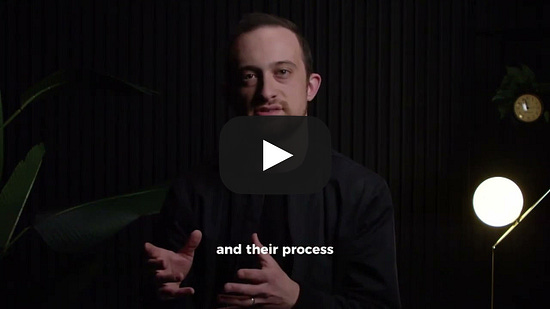|
 |
Dolly Parton tackles the topic of political division in her new rock song "World on Fire."
Like her 1973 hit "Jolene," the song begins with the chorus:
Liar, liar the world's on fire
Whatcha gonna do when it all burns down?
Fire, fire burning higher
Still got time to turn it all around
The song is on Parton’s recently released "Rockstar," her first rock album. "World on Fire" is the only original song on the album.
Throughout her career, Parton has resisted getting involved in politics, a fact she addresses in the first verse.
Now I ain't one for speaking out much
But that don't mean I don't stay in touch
Everybody's trippin' over this or that
What we gonna do when we all fall flat?
She also sings about "greedy politicians" who "wouldn't know the truth if it bit 'em in the ass." Another line is directed at politicians who inspire violence through their rhetoric: "Don't you ever believe words don't break bones."
In the middle of the song, Parton asks a question that motivates much of the work we do here at AVC: "How do we heal this great divide?"
Listeners will no doubt bring their own interpretations to the lyrics. I predict that some will call it too conservative and others will call it too liberal. In interviews, Parton has resisted attaching the song to any particular partisan agenda.
"I wasn't angry," Parton told NPR. "I was fearful. I was worried, and grieved about the state the world is in. Watching the world just burn down around us with all the craziness, all the war, all the famine. And the politics, you know the great divide I guess, is more what I'm talking about. And what it's even doing to families, even my own. It was not political to me."
Can you relate? Are you also struggling with division in your family or friendships? AVC created Mending Division Academy to help.
Mending Division Academy
With six different courses, the MDA can help you or your small group with some of the main causes of division in our lives today. As I've highlighted in previous newsletters, there are courses on conspiracies, journalism, the perception gap, political idolatry, and social media. The sixth and final course to highlight is "When Crises of Faith Divide Us: Confronting Deconstruction," which is taught by Ian Harber, marketing manager at Endeavor and author of a forthcoming book on deconstruction.
Deconstruction has become a buzzword for people rethinking what they believe about their faith. Harber devises a working definition early in the course (you can watch a clip of that here) and then explores how our debates over this topic contribute to many other divisions in our churches.
Check out this short clip from the course:

For the month of November, you can get 40% off with the code “NOV40.”
We're in The Dallas Morning News
An updated version of this newsletter from two weeks ago was published Sunday as an op-ed in The Dallas Morning News. You can read it here: "AI reporters are here, and they’re awful: Here are three tips for dealing with robot-generated news."
What We're Reading
WaPo: Vulgarities, insults, baseless attacks: Trump backers follow his lead
The Washington Post interviewed some Trump supporters at one of his rallies in Iowa. One person interviewed said she could "look past" Trump's vulgarities and insults because she's a Christian. She mentioned this after calling Vice President Kamala Harris a "ho" and another vulgarity unsuitable for print. Read the whole thing here.
“Joe’s gotta go,” said Lori Carpenter, 59, as she left the Fort Dodge event. “And the ho shouldn’t have been there in the first place.” The “ho” was Harris, she clarified, before offering another nickname for Harris that was even more vulgar.
“It doesn’t bother me,” she said of Trump’s insults and crudeness. Her relative, 71-year-old Marsha Crouthamel, agreed.
“It doesn’t bother me either because his policies are strong,” she echoed, adding that Trump got a lot of laughs and added, “Sometimes you just gotta excite people a little bit.”
“We’re Christians, and we can look past that,” Carpenter said. “We see the good that he did our country when he was in.” Asked what she thought of GOP rivals arguing they could deliver Trump-like policies without the baggage, she said: “They’re weaker than him.”
Bloomberg: "How Musk’s X Is Failing To Stem the Surge of Misinformation About Israel and Gaza"
Bloomberg Technology conducted an investigation into how Israel-Hamas War misinformation spreads on X, formerly Twitter. It includes many examples and helpful visual illustrations.
X, formerly Twitter, has been working to convince advertisers to return to the site despite loosened content rules and amid a widespread pause on ad spend after Musk’s endorsement of an antisemitic post. Musk has pointed to Community Notes — a program run by X in which thousands of fact-checking volunteers from around the world can flag posts on the platform when they lack context or are wrong — as a way to allow for all kinds of speech to continue on the site.
But according to a new analysis by Bloomberg and interviews with misinformation experts, the system has operated slowly and inconsistently at a time when global tensions are especially high and misinformation can have real-world consequences.
David French: "An Old Hate Cracks Open on the New Right"
Some of the most popular figures on the right side of American politics are spreading anti-Semitic conspiracies and ideologies.
The New Right rejects the norms and values of what it calls the uniparty or the cathedral: the center-left and center-right American elite. And one of those values is a steadfast opposition to racism and prejudice. The rejection first manifests itself in the form of just asking questions, then it veers into direct challenge of conventional norms, followed by a descent into true darkness.
Hostility unmoored from character quickly turns conspiratorial, and the world of conspiracy theories is where antisemites live and thrive. And finally, the term “America First,” popular with the New Right and the older, Lindbergh right, has always been misleading. It actually means some Americans first or “real” Americans first, and “real” Americans do not include the ideological or religious enemies of the New Right.
You can read the whole thing with this gift link if you don’t have a subscription.

